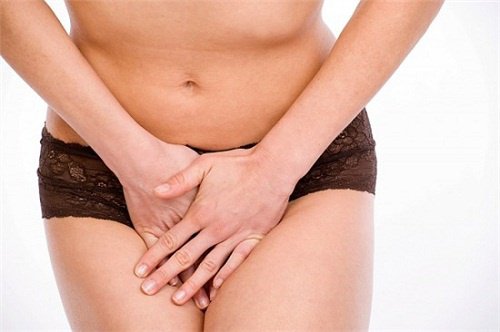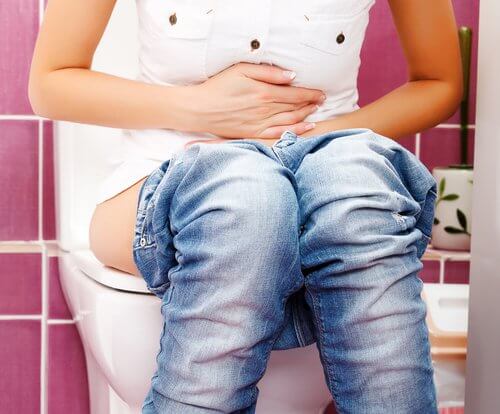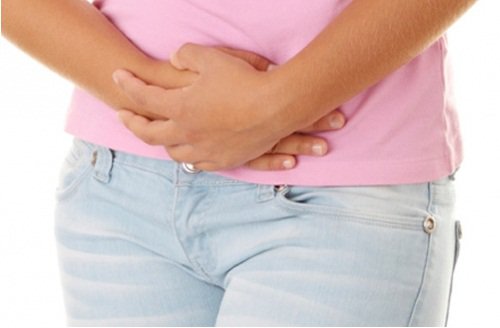What is Urinary Incontinence? Is it Possible to Control Naturally?

Urinary incontinence is the involuntary leakage of urine. This means that the individual is incapable of controlling their bladder. It appears at different stages of life and is more common in women.
In this article, we’ll answer some questions about urinary incontinence and talk about the possibilities of controlling it naturally.
Causes and types of urinary incontinence
Urinary incontinence is much more than expelling a little urine when sneezing, coughing, laughing or lifting something heavy. It’s a hygienic problem that often affects the patient psychologically and reduces their quality of life.
It’s not a disease itself, but the result of changes in the bladder that are common in many diseases.
Also read:
This problem can appear at any stage of life in both sexes. However, it occurs with greater frequency in women, especially during pregnancy and menopause. It happens when the internal pressure in the bladder is greater than the urethra. The different types of urinary incontinence are:
Urge incontinence
It’s when the loss of urine is involuntary and associated with the urge to urinate. It happens when the sensory impulses in the walls of the bladder don’t react in time or as a result of hyperactivity in the area.
Overflow incontinence
This type of incontinence occurs when the bladder is stretched from being full of urine, either from a blockage in the urethra, benign enlargement of the prostate (in men), or neurological damage from a spinal cord injury, surgery or multiple sclerosis.

Psychogenic incontinence
This is related to external sensory stimuli like cold water, strong emotions like fear or anxiety and phobias or mania.
Neurological incontinence
This type is due to changes in urinary function that are caused by problems in the nervous system. It’s common in those who’ve suffered from a stroke, Parkinson’s disease, multiple sclerosis, and spinal cord injuries.
Home remedies that may help control urinary incontinence
Recipe No. 1
Ingredients
- 2 tablespoons fennel
- 1 cup water
Directions
Boil the water with the fennel for 5 minutes, then let it cool. Drink a cup a day.
Recipe No. 2
Ingredients
- 1 handful of raspberry leaves
- 1 cup water
Directions
Boil the water with the leaves for 5 minutes. Drink a cup per day. This recipe is good for those who need to strengthen their pelvic floor muscles.

Recipe No. 3
Ingredients
- 1 garlic bulb
- 1 handful of white hawthorn flowers
- 2 liters water
Directions
Crush the garlic and make a tea with the hawthorn flowers; let it brew for 15 minutes. Strain and add to a bathtub filled with warm water and take a bath.
Recipe No. 4
Ingredients
- 1 tablespoon bearberry leaves (Arctostaphylos uva-ursi)
- 1-liter of tea
Directions
Add the bearberry leaves to the tea. Drink a cup every three hours (no more than 5 times per day). This remedy cannot be used by those with kidney inflammation.
Tips and techniques to control urinary incontinence
Take warm sitz baths
Sit down, contract your pelvic muscles and hold for 5 seconds. Relax for 10 seconds, then contract them again. Repeat this exercise 10 times a day.
Do Kegel exercises
These exercises are accomplished by contracting the pubococcygeus (PC) muscle. Each time that you urinate, stop the stream by squeezing your PC muscle, then continue urinating. Do this several times until your bladder is empty.
NOTE: You shouldn’t practice with a full bladder more than 2-3 times a month. However, if you still want to do these exercises, you can do them with an empty bladder, simulating the process of urination.
Hypopressure exercises
Stand with your legs hip-width apart and bring your pelvis forward. Slightly bend your knees and raise your palms. Contract your abdomen three times with short breaths. When you exhale, do it slowly. Completely fill your lungs. Repeat this process twice.
Figure out the cause of the incontinence
If it’s due to stress, nerves or a urinary tract infection, you’ll know how to take care of it.

Avoid certain foods
Avoid foods like tomato sauce, chocolate, corn syrup, sugars, honey, chili pepper, curry, and all other spicy foods because they can irritate the bladder. The same goes for coffee, soft drinks, and tea.
Don’t reduce your fluid intake
This is a common mistake that many people with urinary incontinence make to keep from accidentally urinating. However, this can lead to dehydration and other serious consequences for the kidneys.
We also recommend:
Lose weight
Obesity goes hand in hand with many problems and one of them is incontinence. When you’re overweight, your muscles cannot contract properly, including the pelvis.
Prevention
Before going to sleep, go to the bathroom. If you feel like coughing or sneezing or know that you’ll have to lift something heavy, tighten your PC muscle to prevent urine from leaking out. Go to the bathroom before leaving home. Wear underwear that’s easy to take off and carry an extra pair in case you can’t control urinary incontinence.
Every time you go to the bathroom, try to completely empty your bladder.
Try urinating even if you don’t feel you have to in order to teach your body how to urinate again. Don’t hold your bladder. When you feel like you have to go, go. Otherwise, an infection could develop in the bladder or the sphincter muscle may weaken.

All cited sources were thoroughly reviewed by our team to ensure their quality, reliability, currency, and validity. The bibliography of this article was considered reliable and of academic or scientific accuracy.
- Meldaña Sánchez, A., Hermida Guitierrez, J., and Sánchez Chapado, M. (2006). Fisioterapia en la incontinencia y prolapsos urogenitales. ATLAS de Incontinencia Urinaria y Suelo Pélvico 343–364.
- García-Sánchez, E., Rubio-Arias, J.A., Ávila-Gandía, V., Ramos-Campo, D.J., and López-Román, J. (2016). Efectividad del entrenamiento de la musculatura del suelo pélvico en el tratamiento de la incontinencia urinaria en la mujer: una revisión actual. Actas Urológicas Españolas 40, 271–278.
- Tero Kontiokari et al. (2003). “Dietary factors protecting women from urinary tract infection”, The American Journal of Clinical Nutrition, Volume 77, Issue 3, 1 March 2003, Pages 600–604.
- Jeanne Trill et al. (2017). “Uva-ursi extract and ibuprofen as alternative treatments of adult female urinary tract infection (ATAFUTI): study protocol for a randomised controlled trial”, Trials. 2017; 18: 421.
- Robles, J. E. (2006, August). La incontinencia urinaria. In anales del sistema sanitario de navarra (Vol. 29, No. 2, pp. 219-231). Gobierno de Navarra. Departamento de Salud. http://scielo.isciii.es/scielo.php?pid=S1137-66272006000300006&script=sci_arttext&tlng=pt
- Esteban, J. A., Longoni, T., González, M. M., & Isasa, M. T. (n.d.). Valor nutritivo y propiedades funcionales del hinojo Foeniculum vulgare. https://www.researchgate.net/profile/Tommaso_Longoni/publication/276274920_Nutritional_value_and_funcional_proprieties_of_Fennel_Foeniculum_vulgare/links/5554a51508ae980ca60a5ad0
- Kegel, A. H. (1948). Progressive resistance exercise in the functional restoration of the perineal muscles. American journal of obstetrics and gynecology, 56(2), 238-248. https://www.sciencedirect.com/science/article/pii/000293784890266X
This text is provided for informational purposes only and does not replace consultation with a professional. If in doubt, consult your specialist.








